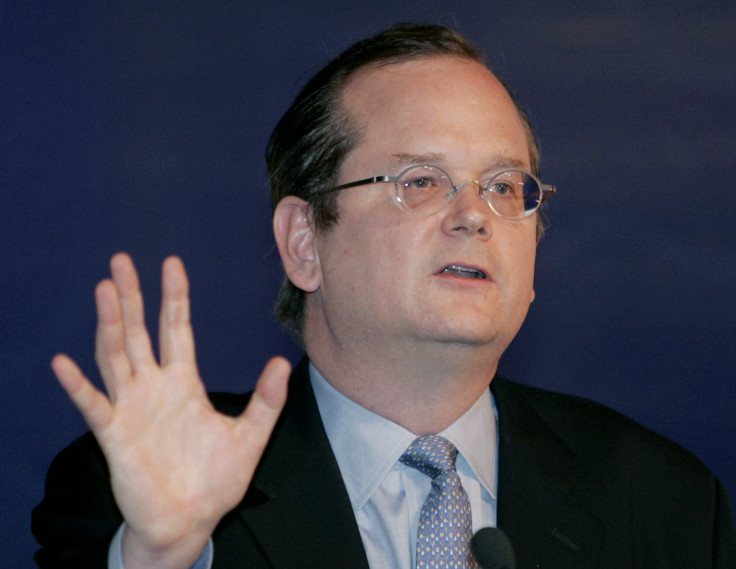Lawrence Lessig-Backed Super PAC, Mayday.US, Raises $7M, Moves To Next Step

When academic and political activist Lawrence Lessig announced he’s organizing a Super PAC with the ambitious goal of ending corruption in government he was greeted with admiration and, perhaps understandably, questions over whether the goal was too ambitious. Now that Lessig has convinced tens of thousands of people to donate more than $5 million in just over two months, though, the question has turned to “Well, what now?”
Lessig, a Harvard law school professor, began the Mayday PAC on May 1 with the goal of financing elections with public money. In an effort to defeat overwhelming opposition to campaign finance reform in both major parties, Lessig promised that the Mayday PAC (and its website on Mayday.US) would dedicate its resources to unseat five lawmakers who are on the “wrong side of the issue” in 2014.
The political action committee raised $1 million in its first month alone, another $5 million by July 4 and inspired donors to join in the social media onslaught by promising to “get big money out of US politics.” Lessig said he expects that $6 million to be matched by big donors in the coming weeks, giving Mayday at least $12 million to help elect candidates for the midterm and, if his goal comes true, eventually change the way campaigns are run.
“You did it. Amazingly, dramatically, beautifully, you did it,” Lessig wrote on his website when the $5 million mark was reached. “I won’t say I knew you would. I wasn’t that smart, and I won’t even say this crowdfunding idea was mine. It wasn’t. But when I heard it, I knew it was right, and that we had to do it.”
A Washington Post analysis of the contributions found that most of the 50,000 people who donated money gave $100 or less, an indication that Mayday has so far remained a grassroots effort that has attracted donations from all over the country.
Despite the obvious difficulty that comes with convincing so many people to open their wallet, it may turn out that raising money was in fact the easiest part of the taking money out of politics.
Unlike Super PACs like Freedom Partners Action Fund and Priorities USA, Mayday doesn’t seem to be targeting a single political party. Even the notion of campaign finance regulation doesn’t split down party lines, with conservative members of the Supreme Court and the American Civil Liberties Union agreeing that restrictions on political advertisements is a violation of the First Amendment.
Lessig himself is considered a liberal but worked as a legal clerk for Justice Antonin Scalia and referenced the libertarian Cato Institute when pitching Mayday to conservatives, decrying Congress for authorizing massive welfare payments to corporations.
“Next is selecting the candidates. We’ve been looking at this for months, but there is tons to think through before we make the choice,” Lessig explained, adding that the first of many steps will be to ask if a lawmaker “falls on the right side of Reform.to,” which trackers members of Congress who support legislation that works to fundamentally change the influence of money in politics.
“If so,” he went on, “then it is not possible that they’ll be someone we’re trying to remove. If not, then it is not possible that they’ll be someone we’re trying to elect.”
© Copyright IBTimes 2025. All rights reserved.





















